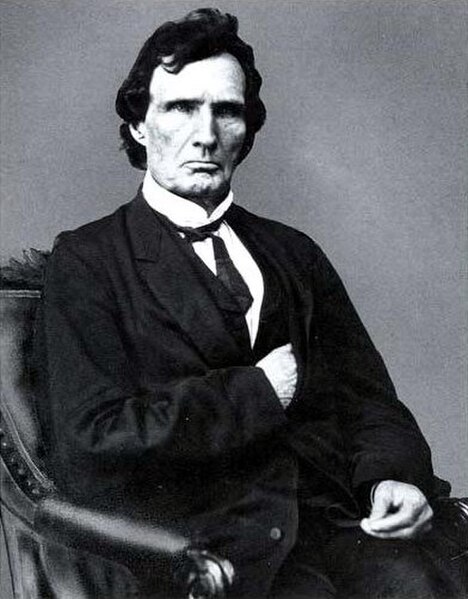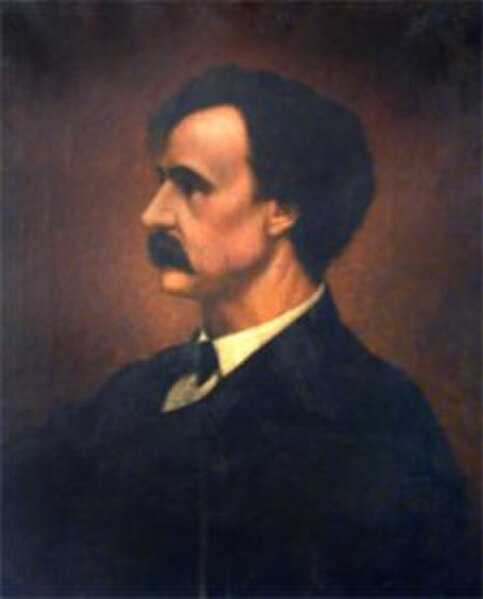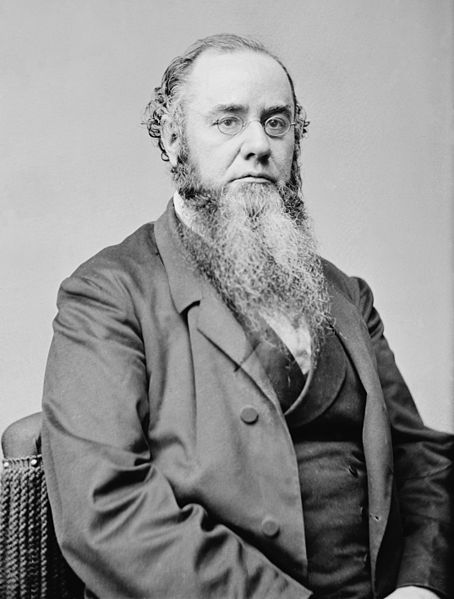Thaddeus Stevens was an American politician and lawyer who served as a member of the United States House of Representatives from Pennsylvania, being one of the leaders of the Radical Republican faction of the Republican Party during the 1860s. A fierce opponent of slavery and discrimination against black Americans, Stevens sought to secure their rights during Reconstruction, leading the opposition to U.S. President Andrew Johnson. As chairman of the House Ways and Means Committee during the American Civil War, he played a leading role, focusing his attention on defeating the Confederacy, financing the war with new taxes and borrowing, crushing the power of slave owners, ending slavery, and securing equal rights for the freedmen.
Portrait by Brady-Handy, c. 1860–1868
Stevens's home on Queen Street, Lancaster, Pennsylvania
Southern view of the proposed compromises of 1860 and 1861, with "Dr. North" (Stevens) proposing to cut the South's legs off using a constitutional amendment. Stevens actually opposed such measures.
Stevens in a thoughtful pose
The Radical Republicans were a faction within the Republican Party originating from the party's founding in 1854—some six years before the Civil War—until the Compromise of 1877, which effectively ended Reconstruction. They called themselves "Radicals" because of their goal of immediate, complete, and permanent eradication of slavery in the United States. They were opposed during the war by the Moderate Republicans, and by the Democratic Party. Radicals led efforts after the war to establish civil rights for former slaves and fully implement emancipation. After unsuccessful measures in 1866 resulted in violence against former slaves in the rebel states, Radicals pushed the Fourteenth Amendment for statutory protections through Congress. They opposed allowing ex-Confederate officers to retake political power in the Southern U.S., and emphasized equality, civil rights and voting rights for the "freedmen", i.e., former slaves who had been freed during or after the Civil War by the Emancipation Proclamation and the Thirteenth Amendment.

U.S. Rep. Thaddeus Stevens
Salmon P. Chase, Lincoln's Secretary of the Treasury
Henry Winter Davis, one of the authors of the Wade–Davis Manifesto opposing Lincoln's "ten percent" reconstruction plan
Edwin McMasters Stanton, Lincoln's Secretary of War, whom Johnson tried to remove from office








